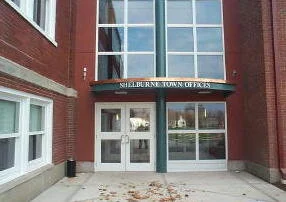A resident of Shelburne’s Lakeview Mobile Home Park, which became a co-op in February, is challenging the new method for calculating property taxes that he claims is unfair to homeowners.
The Shelburne Board of Civil Authority last week heard an appeal from Chris Pratt who owns two homes in the neighborhood and pays rent on two lots.
The 64-lot mobile home park sits on 7.4 acres on the west side of Shelburne Road and is named for the fact that it overlooks Lake Champlain.
Residents there recently received their first property tax bills since they formed a co-op and purchased the park from Lake Champlain Transportation Company.
Bills for each homeowner in the park are based on an assessment of the individual home along with a lot value calculated by dividing the value of the entire site by 64 -- the number of home lots in the park. That means each property is billed the same amount of tax for its home site regardless of lot size.
Pratt’s two lots and homes are adjacent with a garden in between. His tax bill lists the value of one home and its deck at $10,500; the other home and a shed were valued at $19,500. Each lot was valued at $28,700, according to Tax Assessor Ted Nelson.
In his appeal, Pratt argues that because the lots vary in size, condition and location within the park, they should not be assessed identically.
He noted that his lots don’t have a view of Lake Champlain and both are smaller than an actual 1/64 of the park’s land.
In the memo Pratt submitted to the Board of Civil Authority in June where he made his appeal, “smaller lots have been subsidizing the larger units with their rents for a while. Now, the tax department is proposing the same with this one size fits all tax plan, which is not fair or equitable. Lot sizes and boundaries must be established, respected and reassessed.”
Pratt also questions another detail of the tax assessment -- a $15,000 “miscellaneous adjustment” as part of the land value calculation. Nelson said that charge has been included in the tax bills for a number of years prior to his tenure as assessor and the co-op formation.
According to local tax officials, the current law in Vermont requires that when a mobile home park becomes a co-op, the assessor shall take the value of the entire park and divide it equally among sites in the park to calculate the value of a homestead.
Prior to the park becoming a co-op, residents owned their mobile homes and paid rent on their lots to the park owner, Ray Pecor, who then paid a single tax bill for the entire 64-lot property, explained Sean Moran, president of the Lakeview co-op.
Nelson said he used the same method to assess properties in Shelburnewood, the other mobile home co-op in Shelburne which has 27 homes. Nelson said town attorneys at Monaghan Safar Ducham advised him to calculate the mobile home co-op assessments based on the state law.
Pratt questions whether homeowners who rent their lots from the co-op should pay tax on the land value at all.
“I shouldn’t have to pay taxes for land I don’t own,” Pratt said.
Pratt acknowledged that his argument is mostly philosophical. In the opening statement of the appeal, he stated that the appeal “is about fairness and justice -- not personal financial gain. My 2019 taxes will be roughly the same whether I win or lose. If I win, the co-op makes up the taxes by increasing my lot rent; if I lose, I pay my taxes to the town directly.”
Pratt is not a member of his park’s cooperative, having opted out of joining when it was formed earlier this year.
Of the 64 homes in the park, 57 of them are occupied by members of the co-op, Moran explained. Under the rules of the co-op, properties that are rented out to tenants are not eligible for co-op membership. In those cases, neither the owner of the home, nor its tenants belong to the co-op, Moran said. Non-members also pay $15 more in monthly rent to the co-op, Moran added.
Five of the non-member homes have renters whose arrangements were grandfathered into the park when it was formed. Moran said if those homes are sold in the future, their next owners would be required to reside in the homes under co-op rules. Pratt with his two homes is the only homeowner not in the co-op.
At the Board of Civil Authority meeting last week, Nelson emphasized the fluidity of co-op membership, and how it isn’t practical to consider it for tax purposes.
“We don’t want to get into the position where we call up [the president of the co-op] every year to ask who is a member and who is not,” Nelson said.
The result is property taxes assessed to individual homeowners, regardless of co-op membership.
“We’re trying to follow the rules,” Moran said, adding that, should Pratt’s appeal prevail, he fears that residents in every unit will appeal their taxes next year.
The Board of Civil Authority has not made a decision in the matter yet. Chair Tom Little said a committee of board members would do a site visit at Lakeview ahead of its next meeting on Aug. 5.






